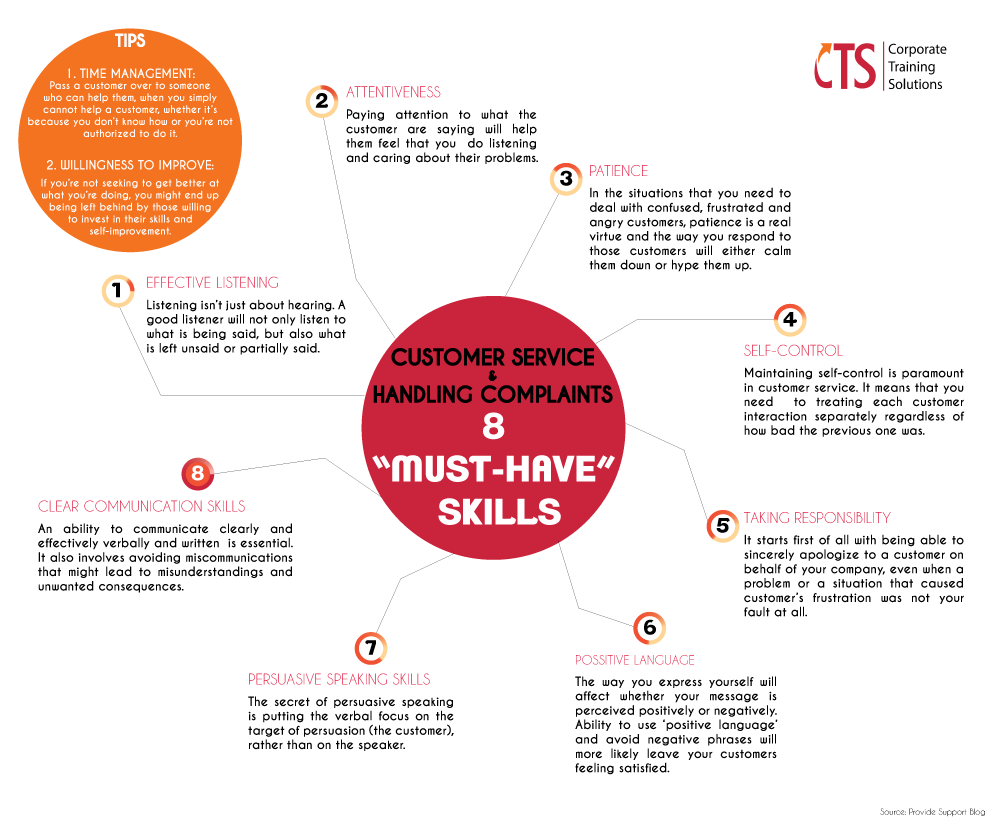ively handling and resolving customer complaints is vital to any organisations’ customer service and success. Providing first class customer service is about creating the right impression first time – a must for front line staff. To be successful at customer service requires an understanding of customer expectations and the skills to exceed that expectation, even when faced with difficult customers.
The 8 must-have skills below is most important that everyone involved in customer service should use in their daily interactions with customers.

1. Effective Listening
Listening isn’t just about hearing. A good listener will not only listen to what is being said, but also what is left unsaid or partially said.
2. Attentiveness
Paying attention to what the customer are saying will help them feel that you do listening and caring about their problems.
3. Patience
In the situations that you need to deal with confused, frustrated and angry customers, patience is a real virtue and the way you respond to those customers will either calm them down or hype them up.
4. Self-control
Maintaining self-control is paramount in customer service. It means that you need to treating each customer interaction separately regardless of how bad the previous one was.
5. Taking Reponsibility
It starts first of all with being able to sincerely apologize to a customer on behalf of your company, even when a problem or a situation that caused customer’s frustration was not your fault at all.
6. Positive Language
The way you express yourself will affect whether your message is perceived positively or negatively. Ability to use ‘positive language’ and avoid negative phrases will more likely leave your customers feeling satisfied.
7. Persuasive Speaking Skills
The secret of persuasive speaking is putting the verbal focus on the target of persuasion (the customer), rather than on the speaker.
8. Clear Communication Skills
An ability to communicate clearly and effectively verbally and written is essential. It also involves avoiding miscommunications that might lead to misunderstandings and unwanted consequences.
TIPS:
1. Time managment: pass a customer over to someone who can help them, when you simply cannot help a customer, whether it’s because you don’t know how or you’re not authorized to do it.
2. Willing to improve: if you’re not seeking to get better at what you’re doing, you might end up being left behind by those willing to invest in their skills and self-improvement.
———————————————
CTS offers a wide range of training courses at premium conference venues in Ho Chi Minh City. Insights from the course facilitator, as well as delegates from a wide range of companies and industries, make our public training courses a rich learning and networking experience.
If you prefer to check the courses schedule, please visit this link.


.png)